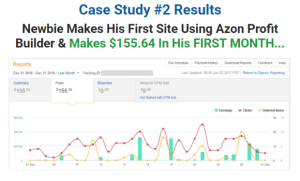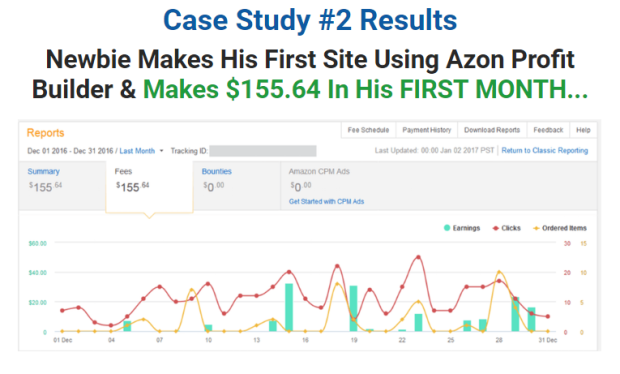Tag: Investing
Investing AND Borrowing Through Lending Club
Lending Club has been sweeping the investment world – and the borrowing universe – at the same time. And why not? Who wouldn’t be interested in a financial facility that enables investors to earn more than the going rate on their money, while borrowers pay less? Lending Club is an online peer-to-peer (P2P) lending platform that takes the banker out of banking. Investors lend money directly to borrowers through the site, enabling both to benefit from the rate of interest that’s established for each loan. And just as important, the entire transaction happens online, eliminating the need for sometimes embarrassing face-to-face meetings that are common with bank loans. It’s a win-win as both investor and borrower benefit from the Lending Club
How One Woman Paid Over $3,500 in Variable Annuity Fees and Didn’t Even Know It
“I think I’m paying around $50 per year.” That’s what I heard from one woman who actually paid a lot more on a variable annuity. A whole lot more. If you haven’t guessed it yet, I’m not a big fan of variable annuities. I’ve seen too many investors who were sold this horrible product – having no clue what it does and why they should even own it. They just know the advisor who sold it to them claimed it was some sort of “guarantee.” What’s worse is the client typically has no idea what they are paying. Don’t believe so? Here’s an actual client scenario which shows just that. The Details For anonymity I
An Awesome (and Free) Investment Tracking Spreadsheet
There are a lot of tools out there to track your investments. One of my favorites is Personal Capital. It offers a free online financial dashboard that automatically tracks your investments and your spending. Today I have another option for you–a free spreadsheet that tracks your investments and tells you when it’s time to rebalance your portfolio. I have to give a BIG thank you to a reader named Dan. He built this spreadsheet and shared it with me weeks ago. With his permission, I’ve created a copy and am sharing it with you today. Thanks, Dan! The Spreadsheet To start, you can see the spreadsheet by clicking here. It is build in Google Sheets. When you go to the spreadsheet, you’ll see
How Advisors Kill Your Retirement Like The Walking Dead
Several friends have recently contacted me about their retirement accounts. They are planning to retire and want to rollover their 401k to an IRA. So far, so good. While they managed their 401k for decades, however, they are uncomfortable managing the rollover IRA. The combination of a lot of money to manage and the consequences if they get it wrong makes them squeamish about investing on their own during their golden years. So they wanted my view on the cost of hiring an investment advisor. The costs ranged from 1.5{7dabfd103aa443fce219eea47f0f346a11a54ce587a1a0cbb74f06b9f7a304ca} to 2.0{7dabfd103aa443fce219eea47f0f346a11a54ce587a1a0cbb74f06b9f7a304ca} of assets under management (called AUM in the business). Are these costs a big deal? No. They are freaking huge deal. Investment fees are always, always, always a big deal, but that’s never more true
Use Moats to Protect Your Investment Castle
Just as a physical moat protects a castle and keeps it thriving, an economic moat protects long-term returns, along with a company’s earnings. For example, Visa and MasterCard have a huge network of connected merchants. New competitors would have to invest a significant amount of time and money to build a similar network. In this case, the size and scope of the network is the moat. The size then makes merchants stay with Visa and MasterCard, as their scale gives them pricing power. Visa and MasterCard’s economic moat limits competition, making their earnings more consistent and predictable. Not only Visa and MasterCard, but all other moats produce returns and help protect earnings. As earnings grow over the long-term, so will the value of your investment.
DRAFT App Review: Simple Portfolio Analysis For Every Investor
Comparing yourself to others isn’t always healthy. For example, you’ll be happier if you’re grateful for the things you have instead of envying the things your friends have. But in some situations, such as analyzing your investment portfolio, comparisons are useful. I’m not talking about comparing how much you’ve invested, rather comparing how your investment choices are performing compared to your peers. For decades, we’ve all used popular indices – the Dow Jones Industrial Average or the S&P 500 – as benchmarks to judge whether our own investments have performed better or worse than average. DRAFT is a new app that may provide you with more – and potentially more useful – ways to see how your investments stack up. DRAFT recently demoed their product at Finovate,
How Everyone Can Afford to Own a Boat
When regular people think about the hobby of boating, more likely than not, they imagine wealthy people, mimosas in hand, enjoying the sun and surf on their 40-foot yachts. For most people, maintaining this type of luxurious hobby is out of the question budget-wise. However, the truth is that boating can be as affordable as it is gratifying — if prospective boat owners are smart in how they save and spend on their vessels. Owning a boat certainly isn’t cheap, but for those who are enchanted by the hobby and savvy with their budgets, boating can be reasonably priced and particularly rewarding. Saving for a Boat Saving for a boat is just like saving for any other major investment, like a house or a car.
Christian Investing Advice
When evaluating the Holy Bible, you are sure to discover a lot of christian investing advice. The Bible offers a multitude of lessons, parables, and instructions for just about every single facet of life. Many wonder if the Bible also offers a distinct code for safe financial investments that are also considered to be ethical. The fact of the matter is, yes, the Bible does offer teachings that have the ability to assist people generate wealth in a manner in which Jesus would respect. Each of us has the ability to invest money according to the Will of God. In this free investing guide, you will learn the top tips investing information for people of faith. The Will of God In order to initiate the task of
Can You Blame Them for Not Being Invested in Stocks?
After the stock market closed on Friday, my portfolio was at an all-time high. That was likely also the case for a lot of investors living in the United States who are similar to me: earning income, investing in the stock market with a buy-and-hold strategy for the future, and leaving money invested during the stickier economic times. Continuing to invest in the stock market throughout the recent recession was an essential part of long-term success with investing. Not all investors had this luxury, as the recession hit hard. Many workers lost their job and their income at the same time investing in the stock market was crucial for eventually receiving those promised long-term average returns. According to a new survey, more
How the Financial Media and Stock Market Analysts Manipulate You
Best Buy, the big box retailer that most shoppers have abandoned sometime in the last decade and a half in favor of Amazon.com, announced better-than-expected earnings for the last three months of 2014, which includes the all-important holiday season. The announcement sent the financial media into a frenzy, as many had all but dismissed Best Buy, even after positive results from the third quarter of 2014. To exemplify Best Buy’s performance and overall sentiment at that time, the Motley Fool presented this five-year chart, comparing Best Buy’s stock price changes over that particular time to the performance of the S&P 500, a popular benchmark for stocks. Here we have a stock that returned -10.9{7dabfd103aa443fce219eea47f0f346a11a54ce587a1a0cbb74f06b9f7a304ca} while the rest of the stock market returned
Robert Kiyosaki Gives Readers a Second Chance
Over the years, I haven’t been too kind to the best-selling author, Robert Kiyosaki. He’s certainly built a successful empire, and a large community people respect him for his business acumen, his willingness to try or to appear to try to help others, and his advice. However, I’ve always found his advice thin at best and dangerous at worst. I received his latest book, Second Chance: For Your Money, Your Life, and Our World, and before opening the book to the first page, I decided to give Kiyosaki his own second chance — and read the book with an open mind. His publisher probably didn’t read my previous commentary before offering to send me a copy for review. I read the entire



























